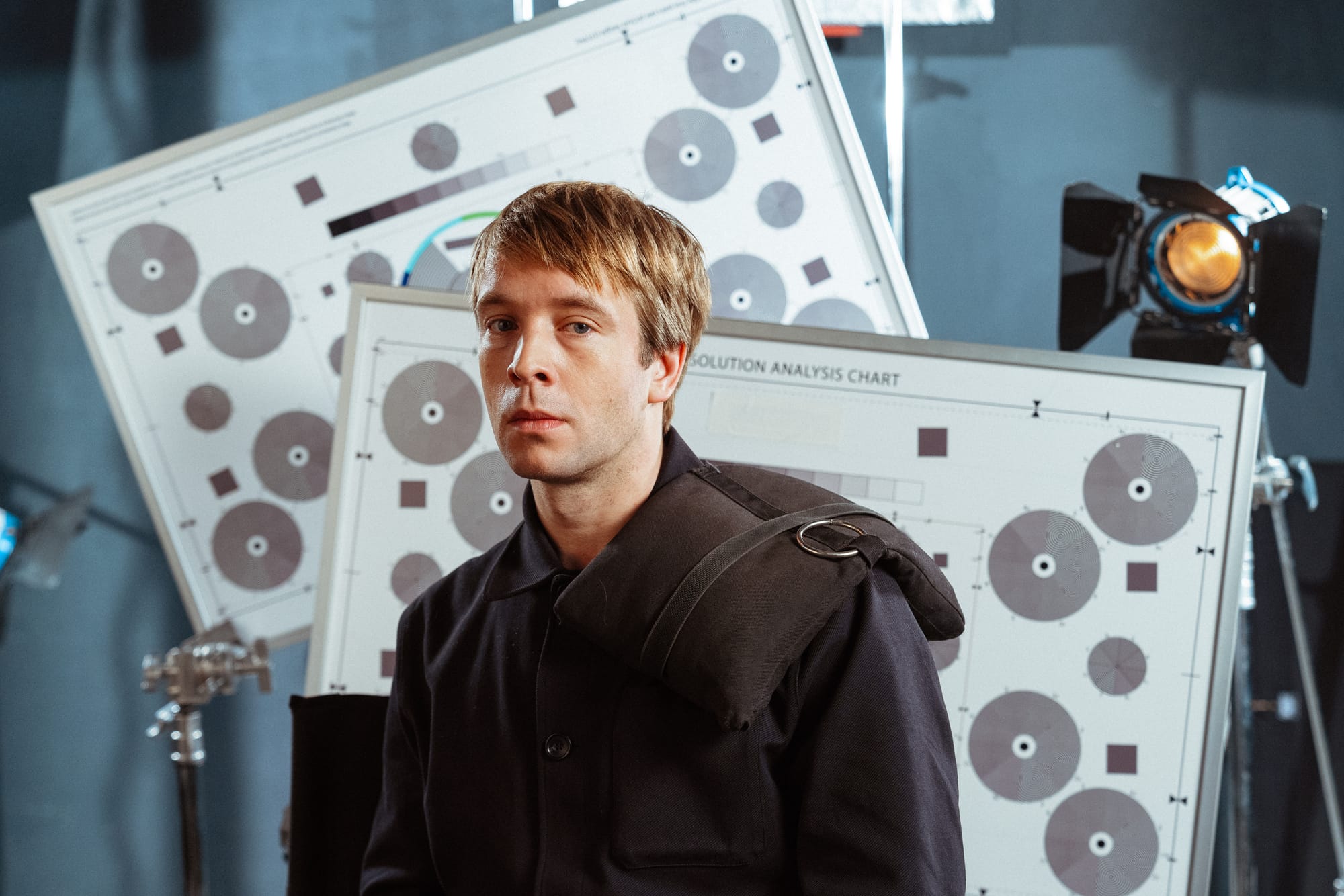BBFF Interview: Staņislavs Tokalovs
"I started to think, 'Okay, so I can either take the money and rewrite what he wants' — but I had to overstep myself — or I say, 'Okay, you go F-yourself?' It took me a couple of days, but I decided not to write it."

The Boston Baltic Film Festival runs in-person from 3/1 through 3/3 at the Emerson Paramount Center and will continue virtually through 3/18. Click here for the schedule and ticket info, and watch the site for Joshua Polanski’s continuing coverage!
An eight-part mini-series about an underground jean production line in a mental asylum, a documentary spotlighting the Russian minority in Latvia through an intimate and messy portrait of the director’s own family, and a fictional social drama on the Balt upper-middle class: the Latvian director Staņislavs Tokalovs had a versatile year (or so). These three labors of Tokalovs’s love for cinema — Soviet Jeans, Everything Will Be Alright, and Lovable — will all play at this year’s Boston Baltic Film Festival.
The three titles also testify to his versatility and adaptability. For Tokalovs, the right story is made through the right medium. While the mediums and scale for these three projects are about as varied as Baltic cinema gets, Tokalovs’ almost sociological attraction to larger social issues creates a throughline that connects the pieces as part of a larger project projecting the quotidian problems of regular people onto very specific individuals. The people vary — a Russian mother who can’t speak Latvian, a stoic cheating boyfriend, a passionate and carefree theater tailor — but, in each case, they navigate the social ladders of Latvia’s past and present as they attempt to make their own cases for the good life.
The following interview has been condensed and edited for clarity.
Boston Hassle: When did you first know you wanted to be a filmmaker?
Staņislavs Tokalovs: There [are two replies.] The action-based reply [is that] we did some comedy sketches at school and … at the theater. And then, [I watched] some films and understood that I wanted to write, right? It was not that peculiar to write for film. At around 16, I just tried to write and then gradually it just spread throughout my whole life and became an obsession.
But after 30, I came to the conclusion that my love of film may be connected with [my] avoidant mother. When we went to see films, there were subtitles and I couldn’t read that fast. She was fully submerged in translating the films for me and was fully connected… not like in everyday life. I think I’m somehow, of course, both are true, but probably some trigger happened there [that] allows me to experience so much love that I think that there is so much love in films in general.
BH: You have three very different projects at this year’s Boston Baltic Film Festival: a doc, a feature, and a mini-series. Can you walk me through your process of selecting a new project?
ST: It comes from a story. And then, because it’s all very subjective that you think that you understand the story, you try and find the best form for that story. So it’s not that, “Oh, let’s make a series.” What is the idea? It’s the idea first, and then you try to find the best form that will suit that story. If you succeed, it’s a good film. If you don’t succeed, it feels underspoken or just wrong.
Lovable was clear. Also, the first draft was … personal, with personal experiences of being a young male, right? And [I] experienced some ideas that evolved into a feature film. It felt right. It felt right.
And [Everything Will Be Alright emerged from wanting to] talk about the Russian-speaking minority in Latvia and having the urge to tell a more detailed story of that group. It was clear that a fiction film can not achieve this because it will be imaginative if it’s still fiction. That’s why it’s called fiction. So it was clear this needed to be a documentary story.
And then there was a lot of research. What kind of documentary story? We ended up with the [idea of a] spotlight on the family. The idea about Soviet Jeans was the initial idea: a young man is making jeans in a psychiatric asylum. The most correct form to talk about it in 2023 was a miniseries because it allowed time for the story to develop and expand and become something substantial. If you imagine a two-hour film or one and a half hour film based on that story, it would not work as well. So the idea or theme and then the form, right? Because I also sometimes end up in, uh, meaning like.
I’m also developing Three Deaths. I don’t know how it will play out. Maybe it will just fail with the script… after a year. It can also be like that. It was a performance and then that felt the most correct way to express the emotion that you get. I was reading Elmar Rivosh’s memoirs based on his experience as a Jewish sculptor during the Nazi occupation and the ghetto experience and how he managed to survive. This was the best way to express that, and I don’t see a film there; in any sense, [the memoir] was the most right way [to express what he wanted to]. So, it’s always trying to find the best form.
BH: Of these three projects, which did you find the most enjoyable to make?
ST: None of them. Everything was very painful.
Continue reading at the Boston Hassle.